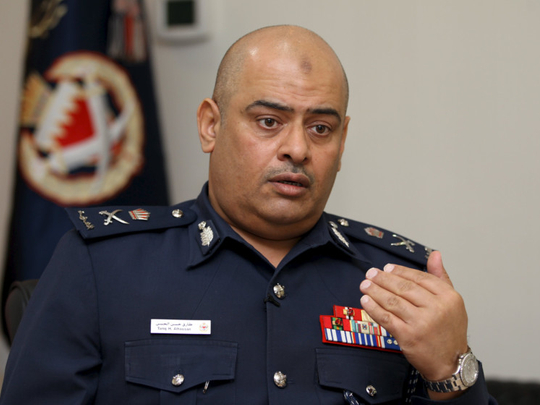
Manama: Bahrain’s police chief said the Gulf state was slowly returning to stability five years after anti-government riots in 2011 were successfully quelled, but the country still faced security threats from Iran-backed elements and militants linked to Daesh.
Speaking ahead of the fifth anniversary of the riots, Brigadier-General Tariq Al Hassan also rejected accusations by rights groups of torture by security forces as a “broken record”, saying Bahrain has set up several monitoring mechanisms to ensure police transparency.
Al Hassan dismissed that, saying that the protests had been hijacked by “extremists” directed by Iran.
“Bahrain has faced terrorist attacks ... acts of unrest and attacks in the past five years. Today, security is better and is under control,” he told Reuters in an interview. “But this stability must be preserved because we are facing an assault from abroad, specifically from Iran as we have shown more than once.” Al Hassan said Bahrain also faced threats from Daesh and Al Qaida.
The brother of prominent Daesh preacher Turki Mubarak Bin Ali is among 24 people on trial in Bahrain for trying to set up a Daesh branch.
“Unfortunately, the issue of human rights had been misused by some organisations and by some states, and it is only just that they acknowledge what Bahrain had achieved in this field,” Al Hassan said. “This broken record about torture in prisons, I don’t know what this talk is about.” He said Bahrain had set up several watchdogs to monitor police work to ensure transparency, appointed an ombudsman to investigate complaints of abuse and was working with prison authorities in Britain and Ireland to improve prison services.
“I see that the level of transparency that exists today, unfortunately, is being ignored by those who belong to human rights bodies, or some of them,” he said.












